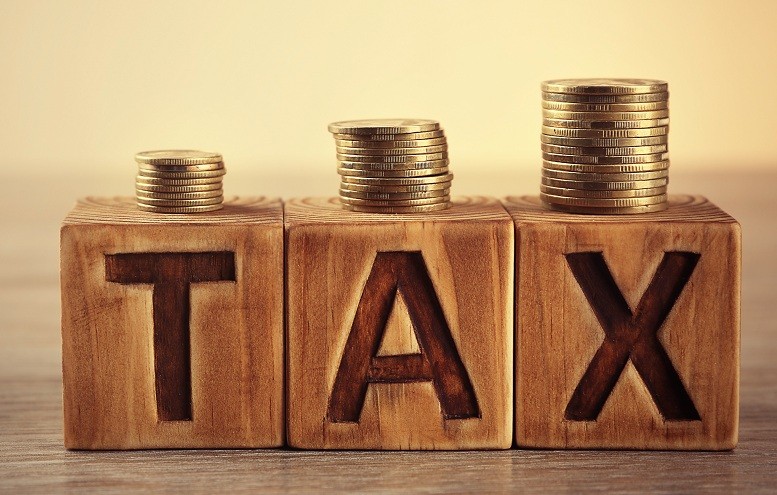The recent tax treaty between India and Hong Kong will have a high impact on MNCs, funds, and entrepreneurs vis-a-vis investments and transactions in the two countries.It comes into effect in the tax year.
Favorable tax treaties with Singapore, Mauritius, Netherlands, and Cyprus have helped attract investors from these countries to India. Even though Hong Kong and India have had close economic ties for decades, the absence of a tax treaty has deterred investors.
The new treaty will not only encourage investments between the nations but also support existing Hong Kong-based set-ups. The base erosion and profit shifting (BEPS) initiative is the global buzzword– ‘substance-driven’ planning is trumping traditional offshore holdings. Under the circumstances, this treaty gains even more significance.
Here’s a look at how the new India-Hong Kong tax treaty affects MNCs, funds and wealthy families.
Investing in India
India levies capital gain tax on sale of Indian securities at rates of 10-40%. Under their respective bilateral treaties with India, residents of Mauritius, Singapore, and Cyprus were exempted from this tax before 1 April 2017. This date saw an end to this exemption.The treaty with Hong Kong does not offer any such capital gains tax relief either.
While the other treaties provide relief against tax on indirect share transfers, the Hong Kong treaty does not. If a Hong Kong resident owns shares in a Singapore company and the value of these shares are mostly derived from assets in India (through an Indian subsidiary), then he is liable to pay taxin India for transfer of these shares.
Recent reforms have made it easy torepatriate capital from India. There is also no dividend distribution tax – this has tempted many MNCs to set up limited liability partnerships (LLPs) for captive operations. The treaty, however, gives no relief against capital gains tax on transfer of other assets like debt instruments or interests in LLPs.
Withholding tax on interest can go as high as 40%at times – the Hong Kong treaty cuts it down to 10% – much lower than the 15% of the Singapore tax treaty but higher than the 7.5% in the Mauritius treaty. Even with the interest deduction caps introduced last year, businesses in India often use debt as a tax efficient route for funds. Indian regulatory norms are changing, and slowly paving the way for debt investment through easy intra-group loans, debentures and bonds. The treaty helps Hong Kong residents benefit from loans and debt investments in India. Hong Kong has a territorial tax regime, and certain foreign source interests are tax-exempt.
The new treaty accepts pass-through entitieslike limited partnerships and trusts. Different from most Indian tax treaties, this is an opportunity for funds and other investors from Hong Kong to explore such tools to invest into India.
The new treaty provides relief in the purview of anti-avoidance and anti-treaty shopping rules. Additionally, India’s general anti-avoidance rules also apply – these keep a check on investments that are fully tax-driven, with no commercial substance. To claim treaty relief, a resident of Hong Kong must obtain a tax residency certificate (TRC) from the Inland Revenue Department (IRD). The IRD scrutinizes TRC applications to ensure that all activities and decision-making is based out of Hong Kong.
Investors interested in emerging economies like India often look for an investment protection agreement – India and Hong Kong do not have such an arrangement yet.
Operating a Business
Permanent establishments (PE)
India has been consistently broadening its domestic tax rules. Profits resulting from a ‘business connection’ in India attract taxes for foreign enterprises – this is a broader category than the ‘permanent establishment’ (PE) defined under a tax treaty. With the treaty in place, there is more clarity on PE-related tax risks. This allows Hong Kong-based MNCs and businesses to invest and transact freely with Indian entities and makes Company formation in India a smoother process. Indian business groups interested in company formation in Hong Kong, or with existing holding and investment interests in Hong Kong also benefit – their potential tax exposure due to activities in India reduces.
The tax treaty works in favour of Hong Kong-based fund managers too. It defines the PE criteria and provides clarity on the actions of their Indian advisors that may potentially attract taxes for them in India. The agency PE concept now includes persons in India actively involved in contracts that are implemented by the overseas enterprise. This sweeping concept of PE gets relief under the treaty too.The treaty, in tandem with some algo-trading strategies or co-location servers for investments in India, helps establish if the Hong Kong-based funds need to pay taxes in India.
India recently introduced the ‘significant economic presence’ test – overseas enterprises may be taxed based on the magnitude of their Indian revenues and the size of their customer base. This holds true even if they do not have a fixed base, agents or employees in the country. Technology companies call it a ‘virtual PE’ concept. However, Hong Kong-based enterprises transacting with India get a breather under the treaty’s narrower PE threshold.
Withholding taxes – a breather
Indian domestic law allows authorities to tax various payments to Hong Kong-based residents for broadcasting fees, software licenses, and professional and technical service fees.The treaty changes the scope of taxable royalties and technical services to internationally accepted principles. These are generally narrower than domestic law and will provide more clarity to Hong Kong residents. For example, satellite broadcasting fees and software licenses without transfer of copyrights will not attract Indian withholding tax if the Hong Kong resident does not have a PE in India.
Profits from international air transport for airline operators in Hong Kong are exempt from tax in India.Profits from international shipping transport with sources in India will be taxed 50% of the applicable Indian taxes. Hong Kong-based partnerships, with no fixed base in India, need not pay Indian withholding tax on income from professional services.
Benefits for wealthy families
Hong Kong is home to many wealthy families of Indian origin. Clarity on the PE concept brings relief to those with family members and business interests in India. Families with funds and family offices managed from Hong Kong also stand to gain.
Regulatory changes in India have been favorable, and the treaty recognizes Hong Kong resident trusts and partnerships – this could encourage non-resident Indian families to use these instruments to hold assets in India, for asset protection as well as for succession planning.
Any individual ordinarily a resident in Hong Kong, or having stayed in Hong Kong for at least 180 days in a 300-day period for two consecutive assessment years, is considered a resident under the treaty. ‘Ordinary residence’ refers to a considerable presence, permanent home or regular residence in Hong Kong.
The treaty outlines a wide framework for the exchange of information between the two countries, for income tax matters and other proceedings related to customs, goods and services tax. Though the exchange mostly relates to tax years from the treaty’s effective date, prior year relevant data required for a tax year audit may also be shared.
Conclusion
The new treaty between Hong Kong and India, one of the fastest growing economies in the world, makes for exciting investment opportunities. Ease of company formation in India further fuels the investment flow.
While the economic and trade influence of jurisdictions like Singapore is unlikely to wane, the treaty is expected to boost trade and investment between Hong Kong and India.


















